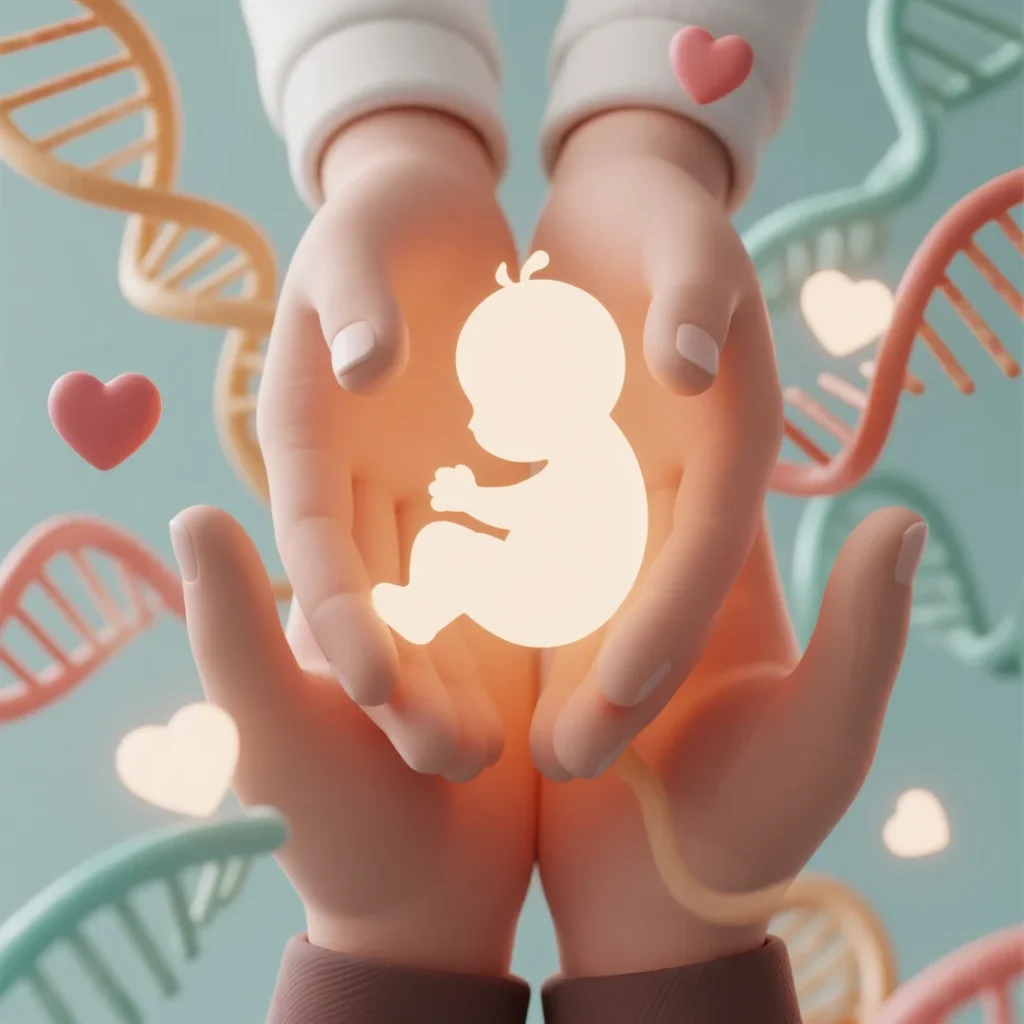The short answer: It depends on the type of surrogacy and whose eggs and sperm are used.
- In gestational surrogacy (the most common type today), the baby can be fully biologically yours if your own eggs and sperm are used.
- In traditional surrogacy, the baby is biologically the surrogate’s (since her egg is used) and may or may not be the father’s.
- With donor eggs or sperm, the biological connection varies based on whose genetic material was used.
Now, let’s break it down in detail.
1. Two Types of Surrogacy – Biological Connections Differ
A. Gestational Surrogacy (No Biological Link to the Surrogate)
This is the most common form today. Here’s how it works:
- The intended parents (or donors) provide the egg and sperm.
- The embryo is created via IVF and implanted into the surrogate.
- The surrogate carries the baby but has no genetic connection to the child.
Biological Parentage Scenarios:
| Scenario | Egg Source | Sperm Source | Baby’s Biological Parents |
|---|---|---|---|
| 1 | Intended mother | Intended father | Fully biological child |
| 2 | Egg donor | Intended father | Biologically father’s, not mother’s |
| 3 | Intended mother | Sperm donor | Biologically mother’s, not father’s |
| 4 | Egg donor | Sperm donor | No biological link to intended parents |
B. Traditional Surrogacy (Surrogate is the Biological Mother)
This is less common today due to legal and emotional complexities.
- The surrogate’s own egg is fertilized (via IUI or IVF) with sperm from the intended father or a donor.
- The baby is biologically the surrogate’s child and may or may not be the father’s.
Key Takeaway:
- If you want the baby to be fully biologically yours, gestational surrogacy with your own egg and sperm is the way to go.
- If the surrogate’s egg is used, she is the biological mother.
2. How to Confirm Biological Parentage
If you want to be 100% sure, genetic testing can be done:
- Prenatal DNA testing (via blood tests or amniocentesis)
- Post-birth DNA testing (cheek swab or blood test)
Many intended parents choose testing for legal and emotional reassurance.
3. Legal Parentage ≠ Biological Parentage
Even if the baby is biologically yours, legal parentage must be established separately. This varies by country/state but typically involves:
- Pre-birth orders (declaring intended parents as legal parents before birth)
- Post-birth adoption or court orders (required in some places, especially for traditional surrogacy)
Important: A biological connection does not automatically make you the legal parent—proper legal steps are crucial.
4. Beyond Biology: The Emotional Aspect
While many parents value a biological connection, families formed through surrogacy often emphasize:
- Love and intention matter more than genetics.
- Bonding is not limited by DNA—many parents feel just as connected to donor-conceived or adopted children.
- Modern families come in many forms, and biology is just one part of the story.
Final Answer: Is the Baby Biologically Yours?
✅ Yes, if:
- You used your own egg and sperm in gestational surrogacy.
❌ No, if:
- The surrogate’s egg was used (traditional surrogacy).
- Donor eggs or sperm were used (unless only one parent’s genetic material was replaced).
Bottom line: If you want a biological child via surrogacy, gestational surrogacy with your own eggs and sperm is the best option. Otherwise, the connection depends on whose genetic material was used.




